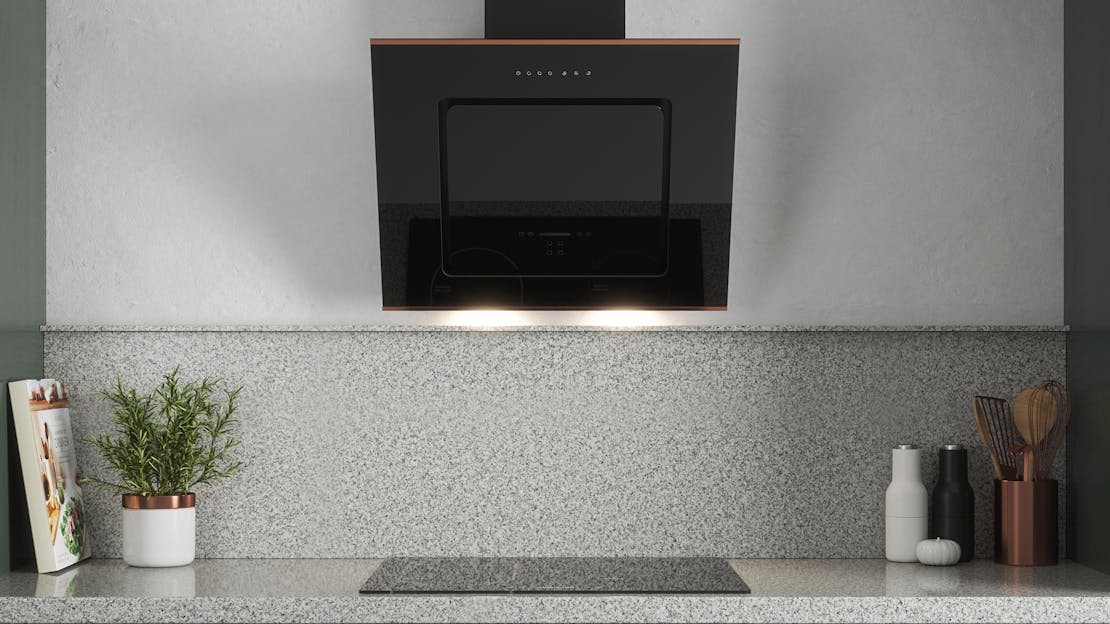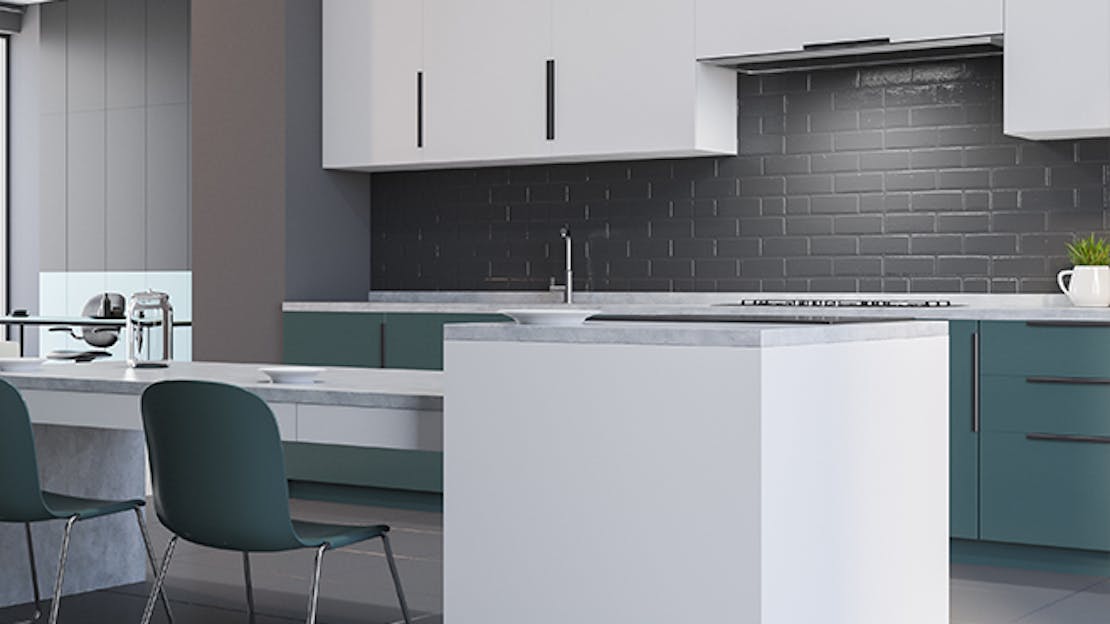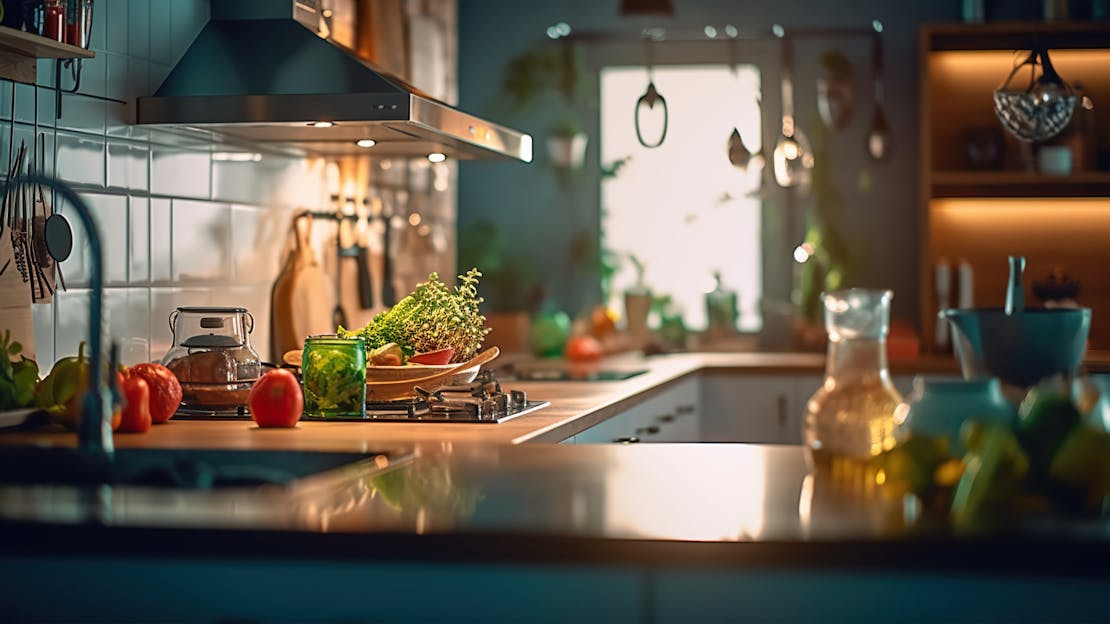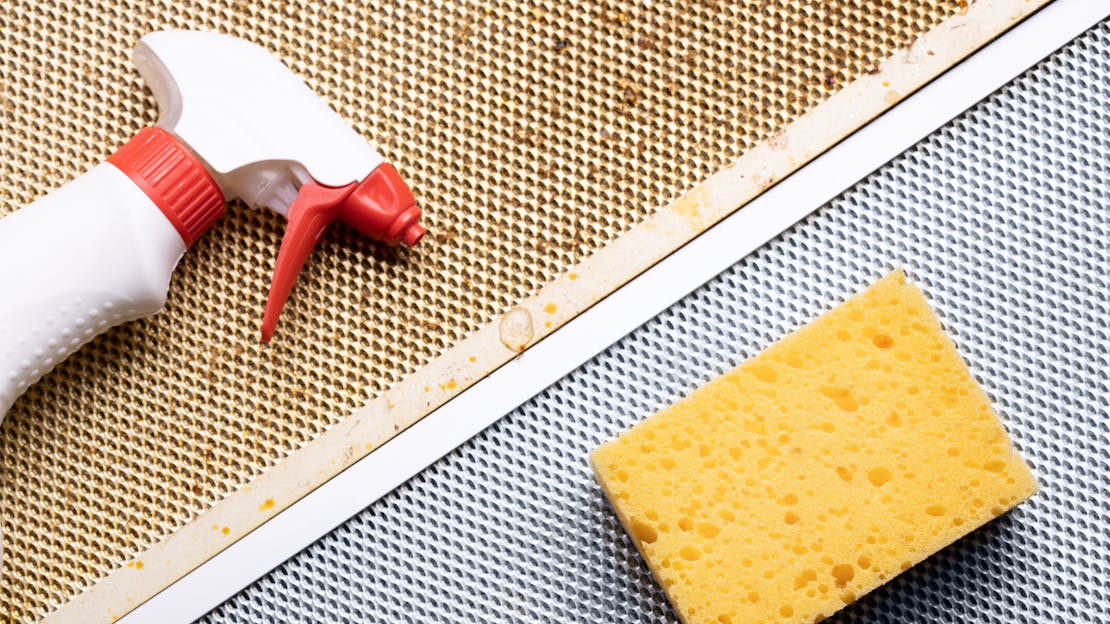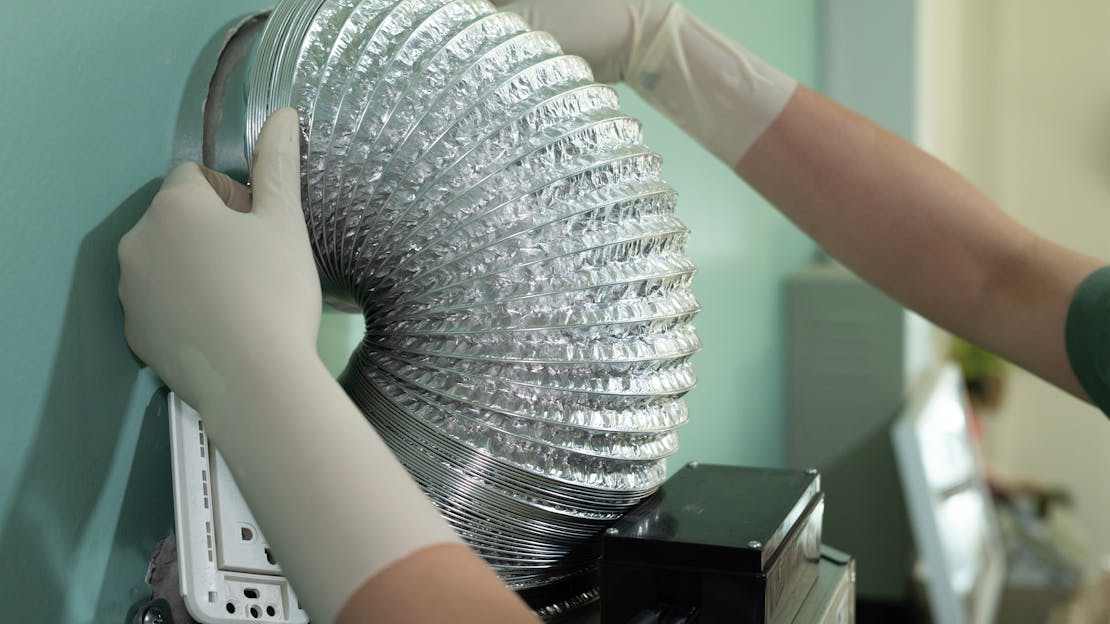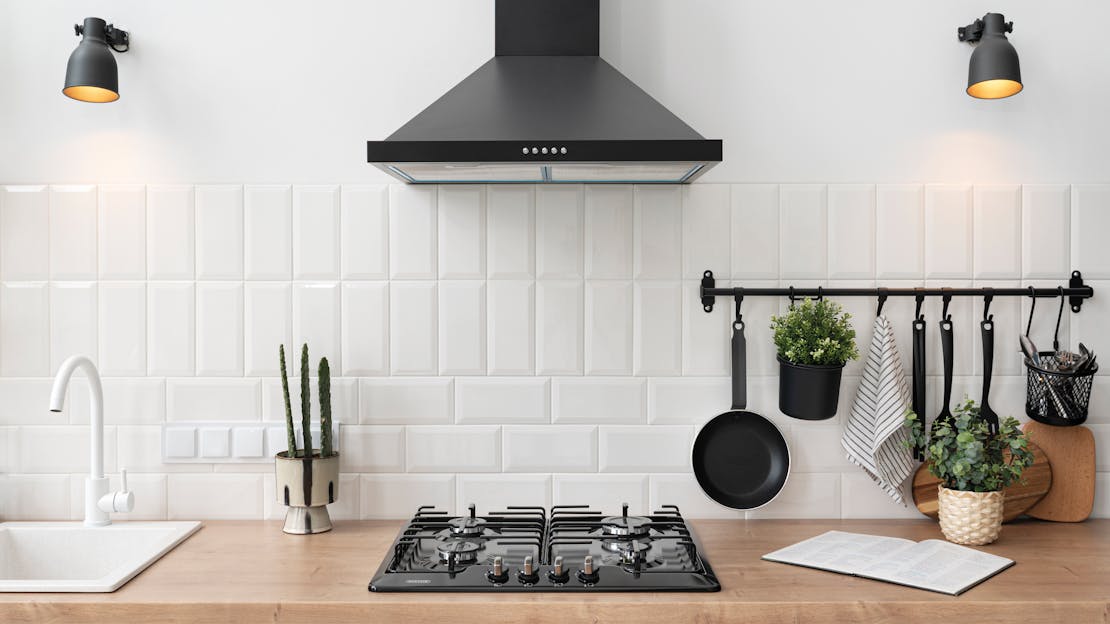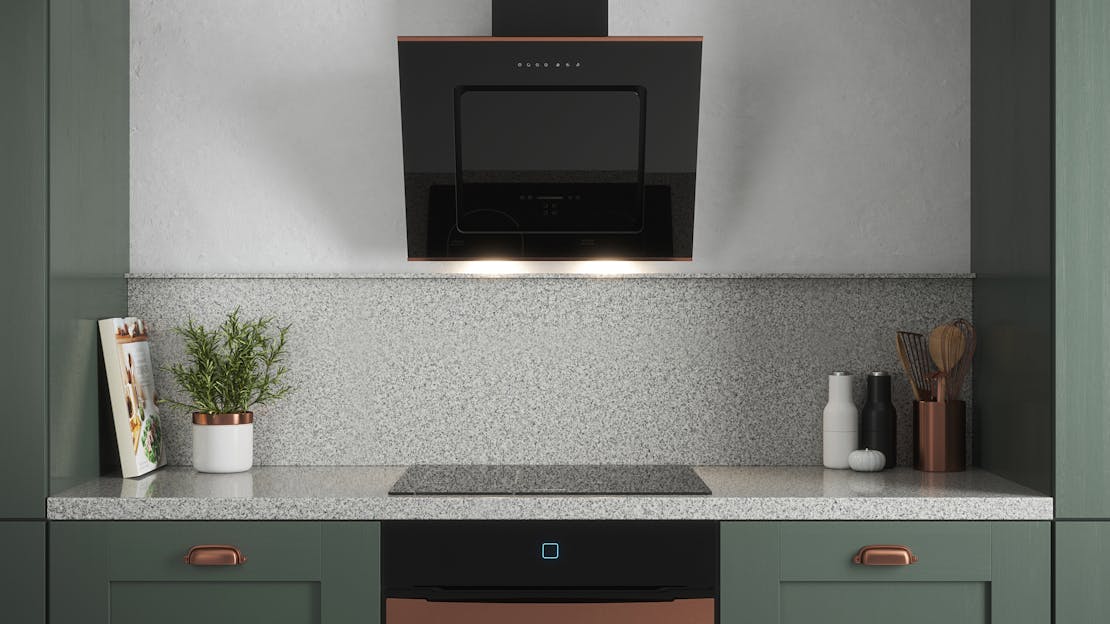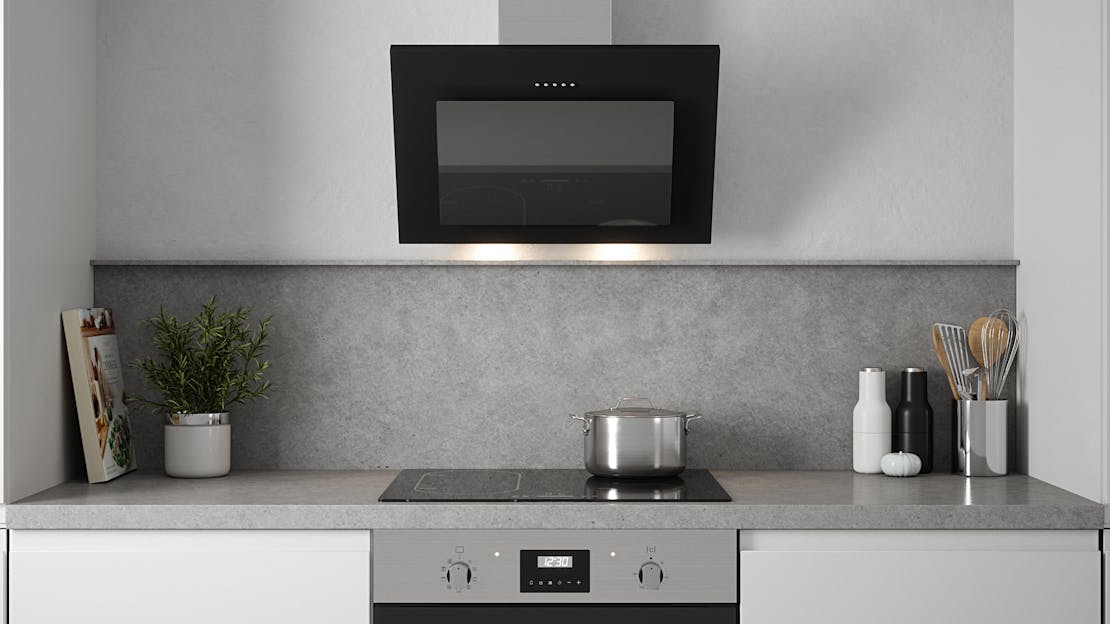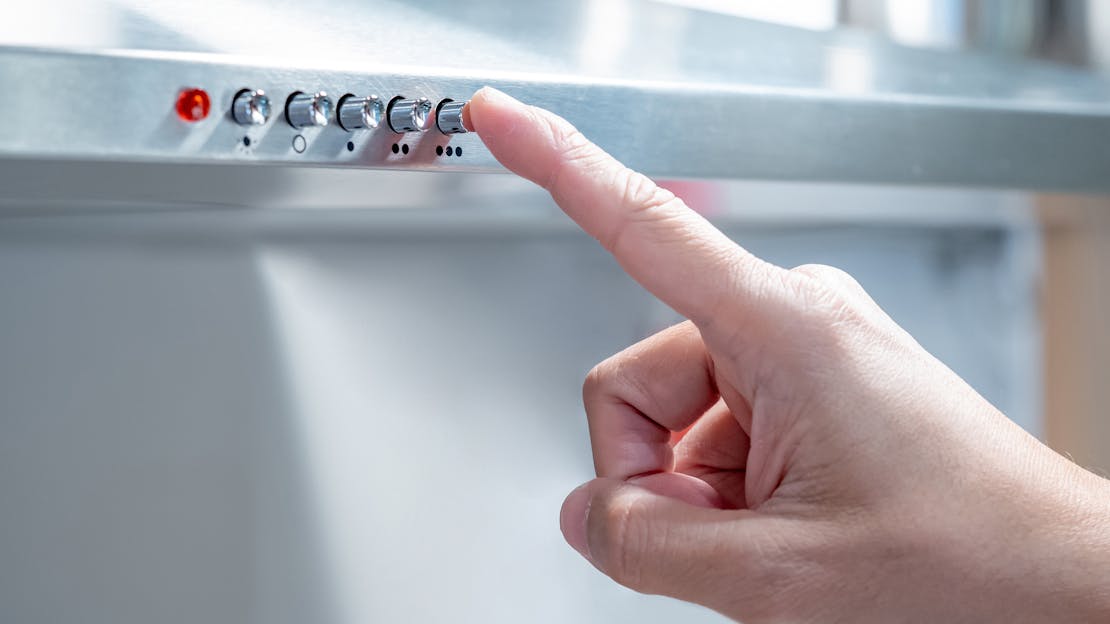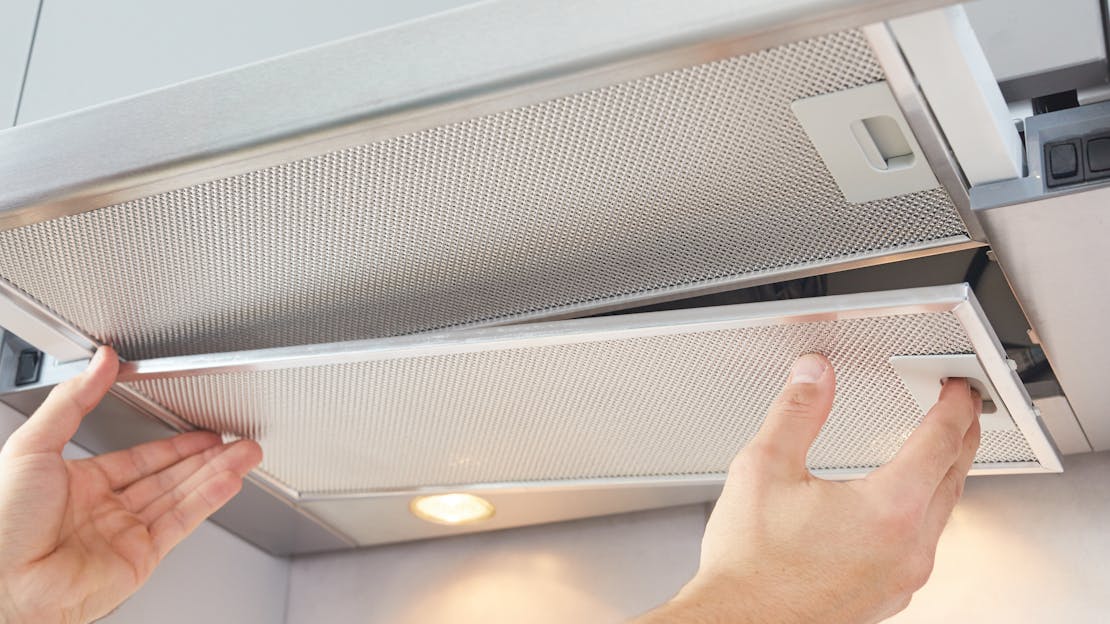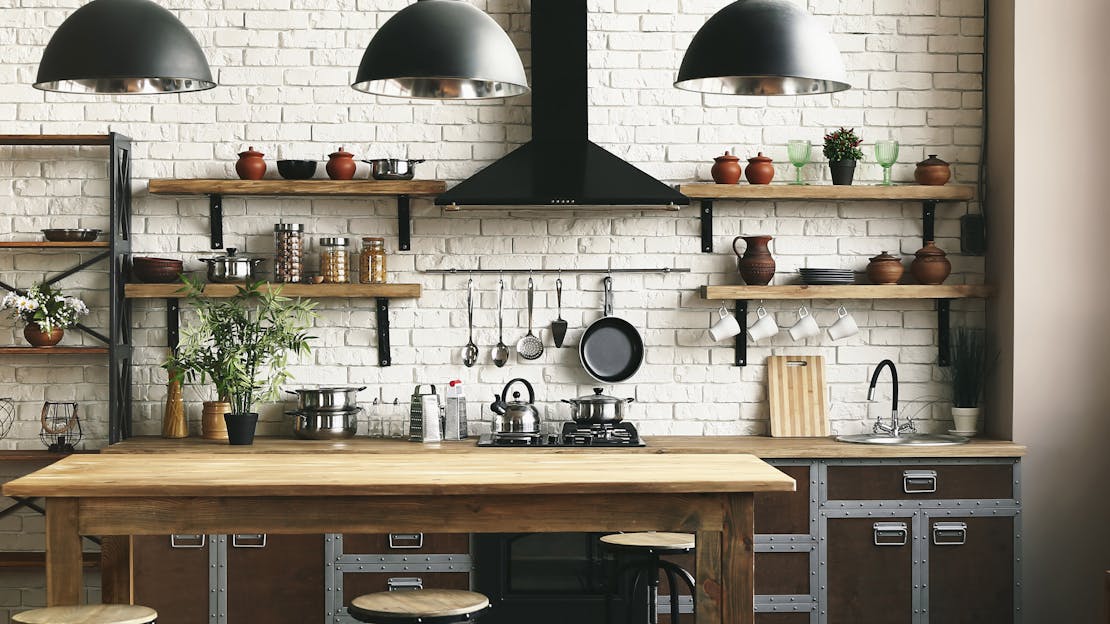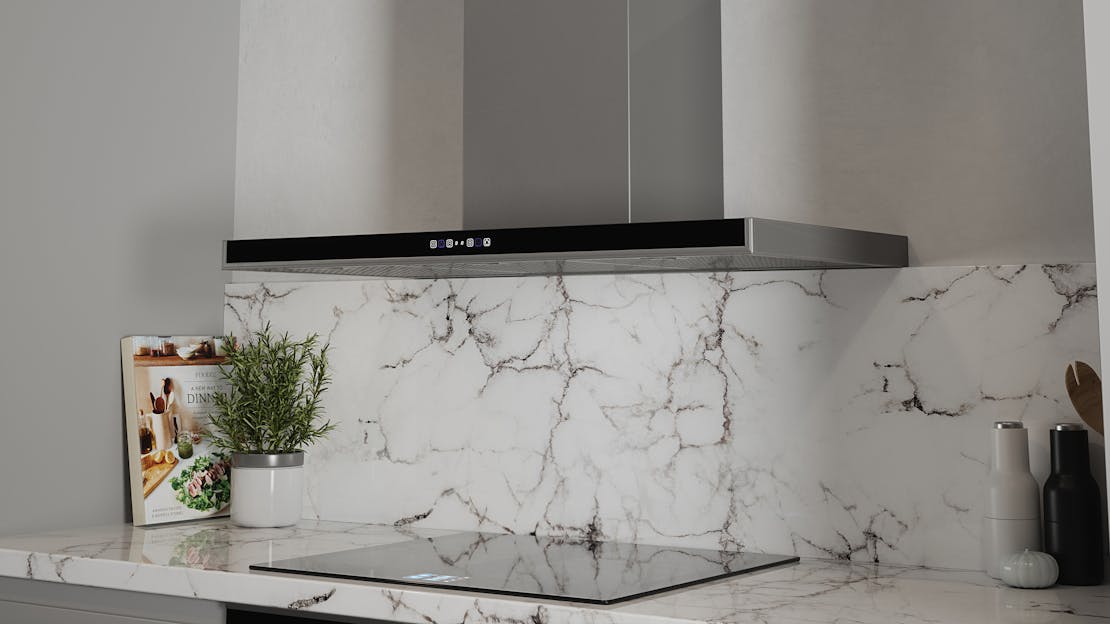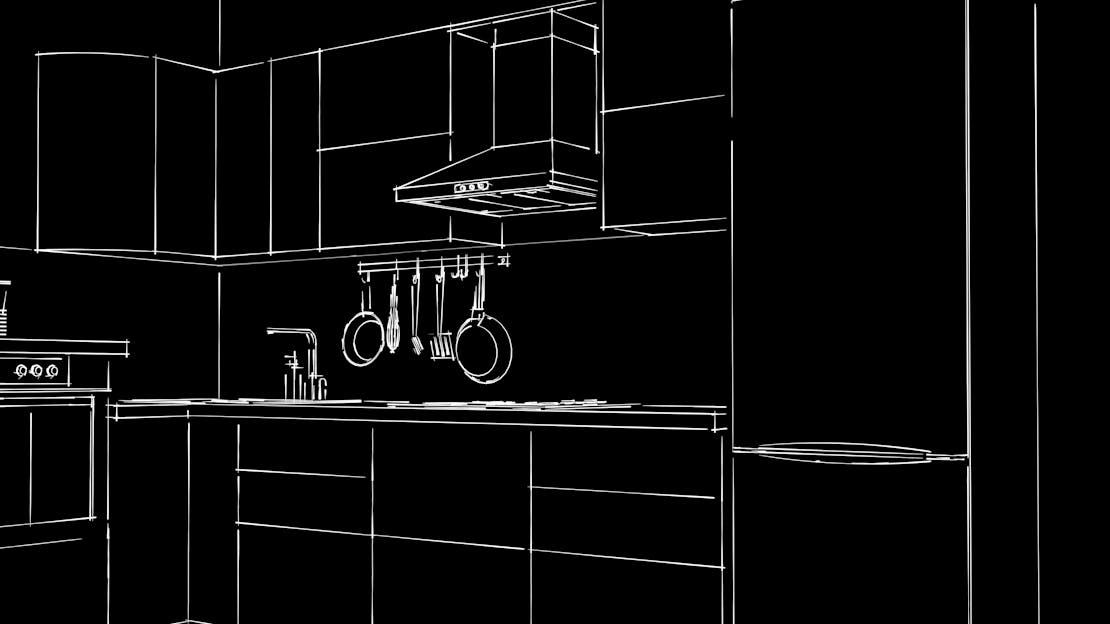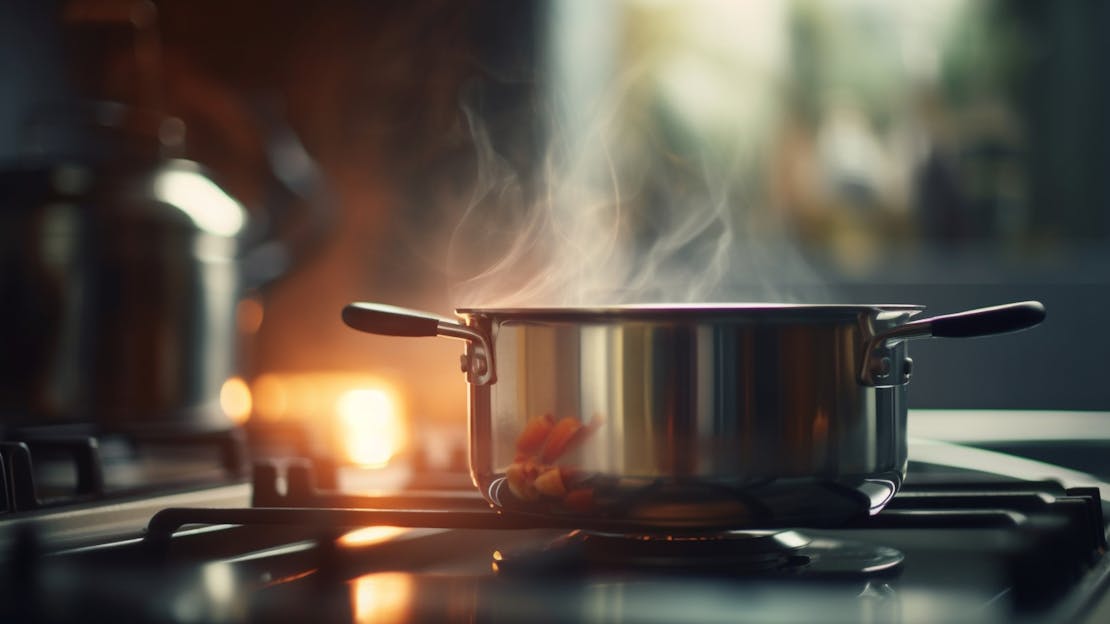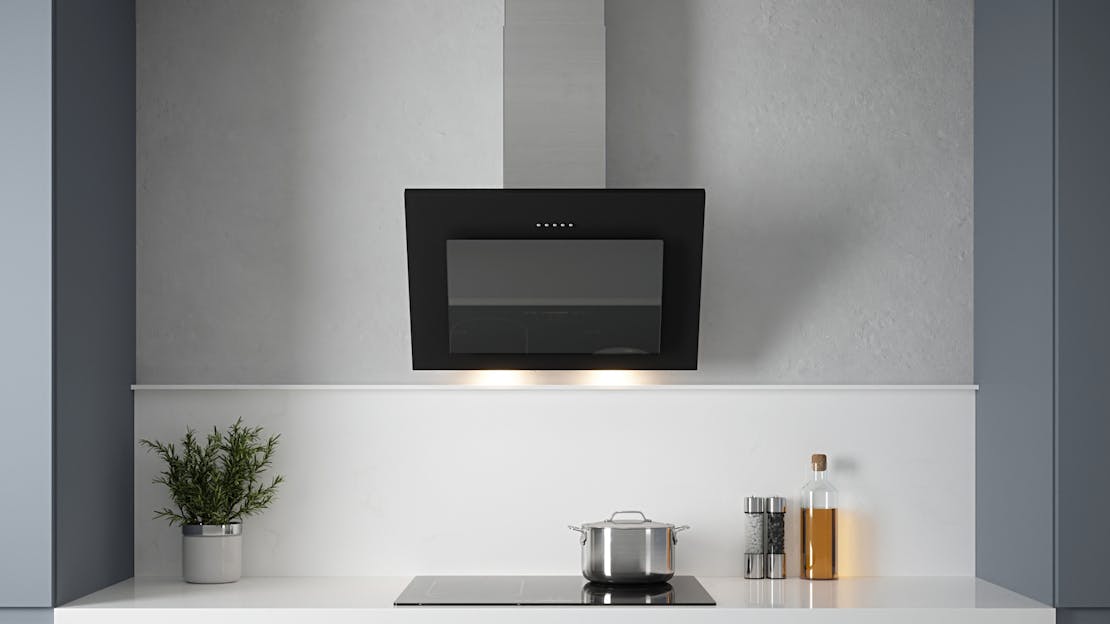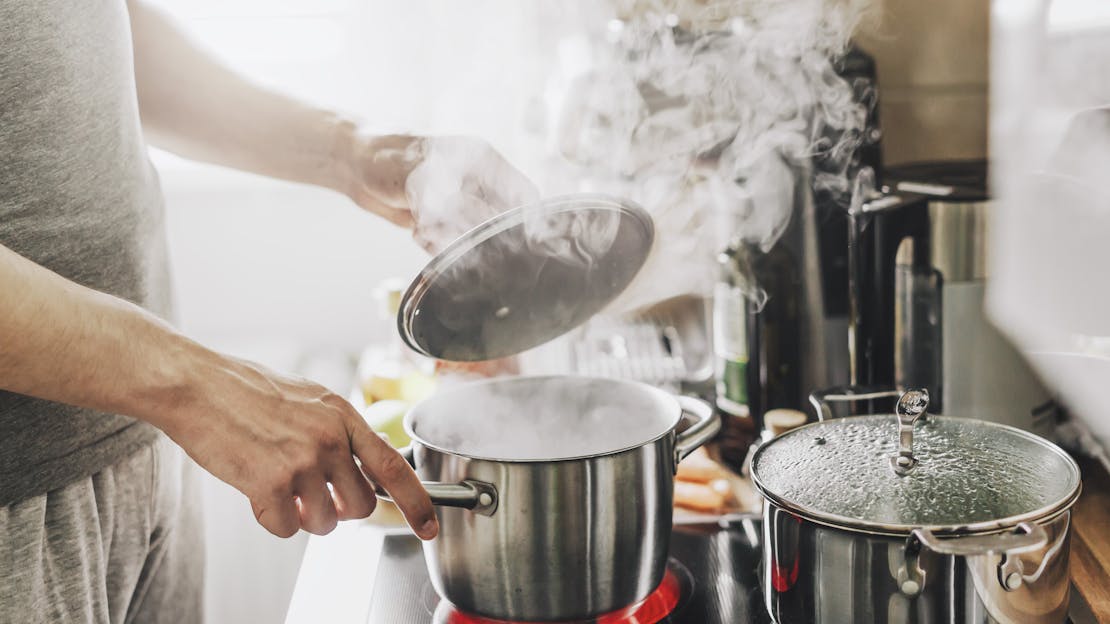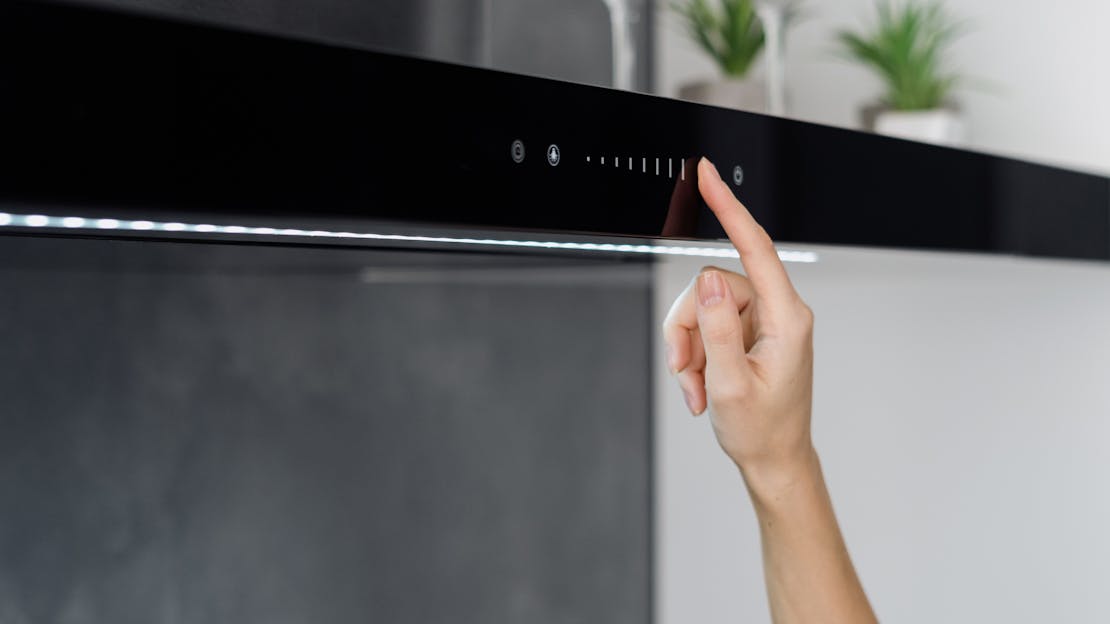
Your Guide to Quiet Cooker Hoods
In the heart of every kitchen, the cooker hood plays a crucial role in maintaining air quality, but its noise can disrupt the culinary experience. Whether you're a home chef or simply seeking a quieter kitchen, this guide will show you how to reduce cooker hood noise. We'll explore various factors contributing to the noise and provide effective strategies, from routine maintenance to advanced soundproofing, helping you transform your kitchen into a tranquil cooking haven. Say goodbye to clatter and hello to a quieter, more enjoyable culinary journey.
What is the problem with noisy cooker hoods?
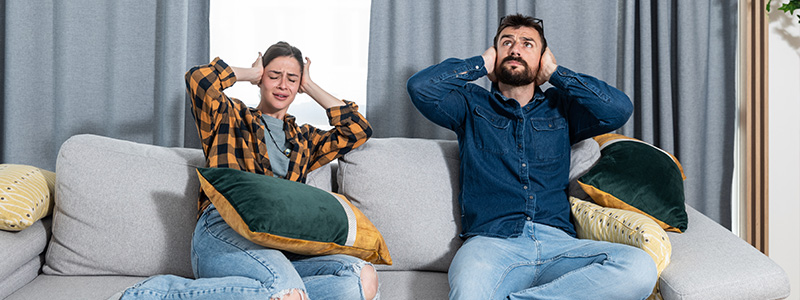
Excessive noise emanating from your cooker hood has the potential to transform your kitchen into an uncomfortable space, especially if you spend a significant amount of time cooking. When the noise levels become too high, you may be inclined to use the hood less frequently, defeating its primary purpose and, in more severe cases, exposing yourself to potential hearing damage. A straightforward way to identify potentially harmful noise is to pay attention to warning signs such as difficulty hearing others, discomfort in your ears, or experiencing ringing in your ears after exposure to the noise. Additionally, some individuals may have ears that are more sensitive to specific frequencies of loud sounds than others, further influencing their tolerance to the noise produced by the cooker hood.
Understanding Cooker Hood Noise Levels
Cooker hood noise levels are typically measured in decibels (dB), a unit used to quantify sound intensity. The average noise level of a cooker hood can vary significantly depending on factors such as the hood's design, size, fan speed, and the specific model or brand. The noise level is usually indicated on the product's label or in its specifications.
To measure the noise level of a cooker hood, specific conditions are typically applied:
Distance: The measurement is taken from a specified distance away from the cooker hood, often at 1 metre (3.28 feet) or 2 metres (6.56 feet) from the hood's outlet.
Fan Speed: Measurements are taken at different fan speeds, such as the lowest, medium, and highest settings, to provide a range of noise levels.
Standardised Testing: Manufacturers often follow standardised testing procedures, as outlined by the European Union (EU) or other regulatory bodies, to ensure consistency in measuring and reporting noise levels.
What is the average cooker hood noise level?
The average noise level of a cooker hood can vary, but it generally falls within the range of 40 dB to 70 dB. Here's a rough breakdown:
- Low Fan Speed: Typically ranges from 40 dB to 55 dB.
- Medium Fan Speed: Usually falls between 55 dB to 65 dB.
- High Fan Speed: Can range from 65 dB to 70 dB or higher.
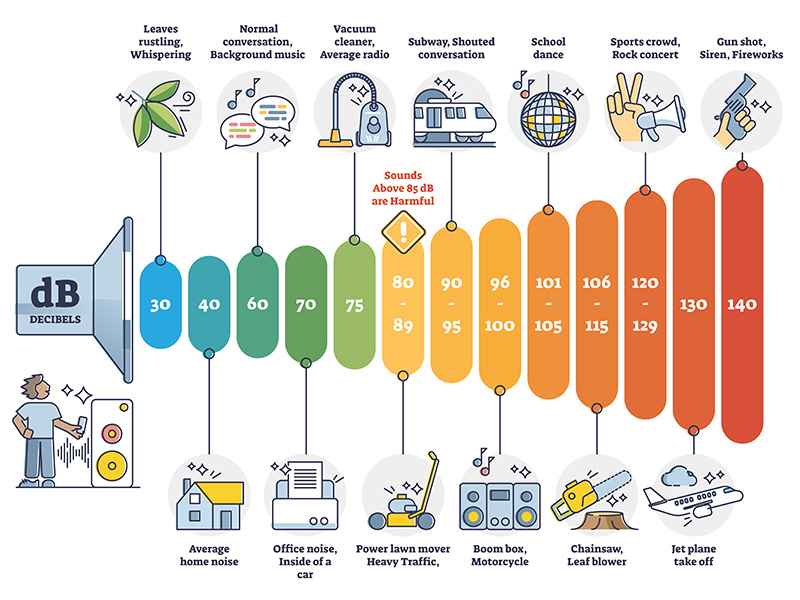
It's worth noting that quieter cooker hoods are often designed with noise reduction features, such as improved insulation, quieter motors, and efficient airflow design. When shopping for a cooker hood, you can check the product specifications or labels to compare noise levels among different models and select one that aligns with your preference for a quieter cooking environment.
How can I reduce the noise level of my cooker hood?
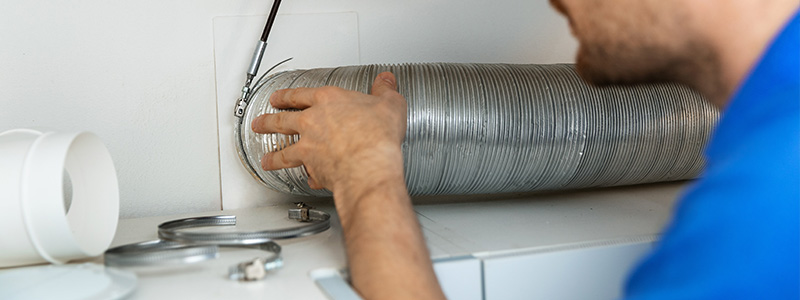
To lower the noise level of your cooker hood and create a quieter cooking environment in your kitchen, consider these practical steps:
Choose a Quieter Model: When purchasing a new cooker hood, opt for models designed with noise reduction features and enhanced insulation for quieter operation.
Regular Maintenance: Maintain your cooker hood by regularly cleaning filters and removing grease build-up, as clogged filters can increase noise levels.
Check for Loose Parts: Periodically inspect your cooker hood for loose components like screws or bolts, and tighten them to reduce vibrations and noise.
Select the Right Fan Speed: Adjust the fan speed as needed for your cooking tasks, using lower settings for quieter operation and higher speeds only when necessary.
Proper Installation: Ensure your cooker hood is installed correctly to prevent vibrations and excess noise. Follow the manufacturer's installation guidelines or seek professional installation.
Soundproofing: Apply soundproofing materials inside the surrounding cabinet. Materials like acoustic panels, foam, or rubber padding can help dampen noise.
Consider a Ducted Hood: If possible, opt for a ducted cooker hood that exhausts air outside instead of recirculating it through filters. Ducted hoods are generally quieter as they avoid recirculation.
Cook During Off-Peak Hours: Whenever feasible, cook during quieter times to minimise disruptions to others in your household due to noise.
Consult a Professional: If noise remains an issue despite your efforts, consider seeking advice from a professional appliance repair technician or installer who can diagnose and address the problem effectively.
By implementing these strategies, you can successfully lower the noise level of your cooker hood and create a more peaceful cooking environment in your kitchen.
Top Selling Cooker Hoods from MyAppliances
Explore our best-selling cooker hoods, featuring angled glass, curved glass, and chimney styles. These sleek options offer powerful ventilation and contemporary design, ideal for modern kitchens. Upgrade your cooking area with our top-selling hoods, merging functionality with stylish appeal.
Everything you need to know about Cooker Hoods
Everything you need to know about Cooker Hoods
Cooker hoods are essential kitchen appliances that combine functionality with style. These sleek units efficiently remove cooking odors and grease from the air, ensuring a fresh and clean kitchen environment. Explore our collection of articles to discover how cooker hoods can enhance your cooking space with their effective ventilation and modern designs.
![The Ultimate Guide to Cooker Hoods]()
From understanding the different types and features to exploring installation options and maintenance tips, this comprehensive guide will equip you with the knowledge to transform your kitchen into a truly captivating and odour-free haven.
![The Ultimate Guide to Integrated Cooker Hoods]()
Within this comprehensive guide, we will delve into the various types, features, installation options, and maintenance tips for integrated cooker hoods, enabling you to make an informed choice and enhance your kitchen into a fresher, more enjoyable environment.
![Cooker Hoods Explained – The Ultimate Guide To Ventilating Your Kitchen]()
In this comprehensive guide, we will delve into the importance of proper kitchen ventilation and provide you with all the essential information you need to create a clean, comfortable, and healthy cooking environment.
![The Ultimate Guide to Keeping Your Cooker Hood Clean]()
In this article, we’ll explore the best ways to keep your cooker hood clean, including what cleaner to use, what cloth to use, how to keep on top of dust, how to clean the filters, and how to stop fingerprints on stainless steel hoods.
![What is the difference between vented and recirculating cooker hoods?]()
Vented and recirculating cooker hoods serve the same fundamental purpose in a kitchen: they help to remove smoke, odours, grease, and airborne particles generated during cooking. However, they achieve this goal through different methods, and each has its own advantages and disadvantages. In this article we explore the key differences between vented and recirculating cooker hoods.
![Your Guide on How to Reduce Cooker Hood Noise Levels]()
Whether you're an enthusiastic cook or someone seeking a quieter kitchen, this guide provides valuable insights into reducing cooker hood noise. We'll delve into the underlying factors causing the disturbance and provide practical solutions, including routine maintenance and advanced soundproofing techniques, allowing you to transform your kitchen into a tranquil culinary haven. Say goodbye to the clamour and embrace a quieter, more enjoyable cooking experience.
![What do cooker hoods do?]()
Cooker hoods are essential appliances in kitchens designed to improve air quality and remove various airborne contaminants, odours, and pollutants generated during cooking. They play a crucial role in maintaining a clean, healthy, and comfortable kitchen environment. In this guide we will cover exactly what cooker hoods do.
![What are the Regulations on Cooker Hoods?]()
There are some general guidelines that you should follow when installing or using a cooker hood. These guidelines are designed to ensure that your cooker hood is safe and effective.
![What size cooker hood do I need?]()
Determining the right size cooker hood is crucial to ensure efficient smoke and odour extraction, creating a clean and comfortable cooking environment. In this guide, we will walk you through the considerations and steps involved in selecting the ideal size cooker hood that suits your specific requirements. Let's dive in and find the perfect match for your kitchen!
![A Guide to Choosing the Right Cooker Hood for Your Kitchen]()
With so many different types of cooker hood styles available, it can be difficult to know which one is right for your kitchen. In this article, we’ll explore the different types of cooker hood styles available, including downdraft cooker hoods, island hoods, visor hoods, and integrated hoods. We’ll also explain why it’s worth paying extra for a designer hood, and what the different shapes of cooker hood mean.
![A Guide to Cooker Hood Filters : Everything You Need to Know]()
Maintaining a cooker hood requires minimal effort, primarily focusing on the regular cleaning or replacement of the cooker hood filter. This simple maintenance task ensures optimal performance and effectiveness of your cooker hood in removing smoke, odours, and grease particles from your kitchen.
![A Comprehensive Guide on Choosing the Perfect Cooker Hood for Your Kitchen]()
Join us on this journey as we explore the world of cooker hoods, unravel the mysteries of extraction power and filtration systems, and uncover the secrets to finding a cooker hood that seamlessly integrates into your kitchen's design while efficiently clearing the air of unwanted impurities.
![Cooker Hoods: A Guide to Our Advanced Features]()
In this article, we’ll explore some of our key features, including quiet hoods, energy-efficient hoods, types of controls, boost function, timer, and peripheral aspiration.
![How do I know which Cooker Hood I need?]()
Cooker hoods might seem like one of those kitchen components that's just there. You notice it when it's too loud or if it doesn't do its job properly. But, in fact, the right cooker hood can be a silent hero in your culinary space. Let's get straight into figuring out the right one for you.
![How Far Away Above the Cooker Should the Cooker Hood Be?]()
Selecting the right cooker hood is just one piece of the puzzle; positioning it correctly is equally vital. The height at which the hood is placed above your cooker can influence its effectiveness, safety, and the overall aesthetics of your kitchen. Let's delve into the optimal heights and the factors affecting this crucial decision.
![Understanding Extraction Rate: A Simple Guide to Choosing the Right Cooker Hood]()
When choosing a cooker hood, one of the most important factors to consider is the extraction rate. However, this term can be confusing for many consumers. In this article, we’ll explain what the extraction rate is and how it’s calculated, so you can choose the right cooker hood for your kitchen with confidence.
![FAQ - Cooker Hoods]()
Ventilation matters more than you might think in your kitchen, and that's where cooker hoods come in. Our Cooker Hoods FAQ will help you understand the importance of these essential appliances. From removing cooking odours and improving air quality to selecting the right type of hood for your kitchen layout, we'll address your questions and concerns about cooker hoods to ensure your cooking space remains fresh and comfortable.
![Clearing the Air: Strategies to Combat Condensation with Cooker Hoods]()
This article delves into the causes of condensation during cooking and provides a comprehensive guide to mitigating its effects.

